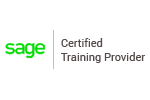Step 1
Decide on Your Career Pathway
What are your accounting ambitions? Where do you want your career to go long-term? Your long-term ambitions are your end goals. Your short-term targets are the progressive, immediate steps to achieving the long-term goals in the most direct way. If the above sounds complicated, it really isn’t. Download our Course Decision Maker Guide it will help you differentiate and decide on your goals, so you have a clear career plan. Remember if you are unsure, you can ring the number above at any time.
Step 2
Which Route is Right for You - Accounting or Bookkeeping?
The bookkeeping/accounting route you take, should be chosen based on your long-term ambitions. Are your long-term goals to be a Bookkeeper? Then study the Bookkeeping route. If you want to be an AAT Accountant long-term, then you are best to study the accounting route from the outset. You will achieve the Bookkeeping modules & assessments as you progress through accounting route.
Step 3
Choose your study method
All students study differently based on their natural learning style. Knowing how you prefer to learn is difficult to assess until you start learning. Gold Edge is unique in providing all key learning methods in their online courses. Giving you the peace of mind of having online e-learning, manual resources, hardcopy books plus live classroom or recorded classroom. Our support includes 7-days a week online tutor support and coaching support. Studying the AAT level 2 Certificates in either bookkeeping or accounting gives you the confidence that you will gain an industry-recognised qualification, perfect for a bookkeeping career.
Step 4
Understanding your course better
What to expect in your course. There are 2 modules at level 2, Introduction to Bookkeeping and Principles of Bookkeeping. You’ll study the basics and essential skills of double-entry bookkeeping, bookkeeping controls, calculating financial affairs and learning to work efficiently and accurately. You'll prepare sales invoices, credit notes and record supplier invoices. At the end of each module, you’ll be assessed by computer-based exams. Exams and AAT membership are additional fees. At level 3 you move on to advanced bookkeeping including studying VAT, year-end procedures and producing final accounts. Again, there are two modules that are assessed by computer-based exams.



























